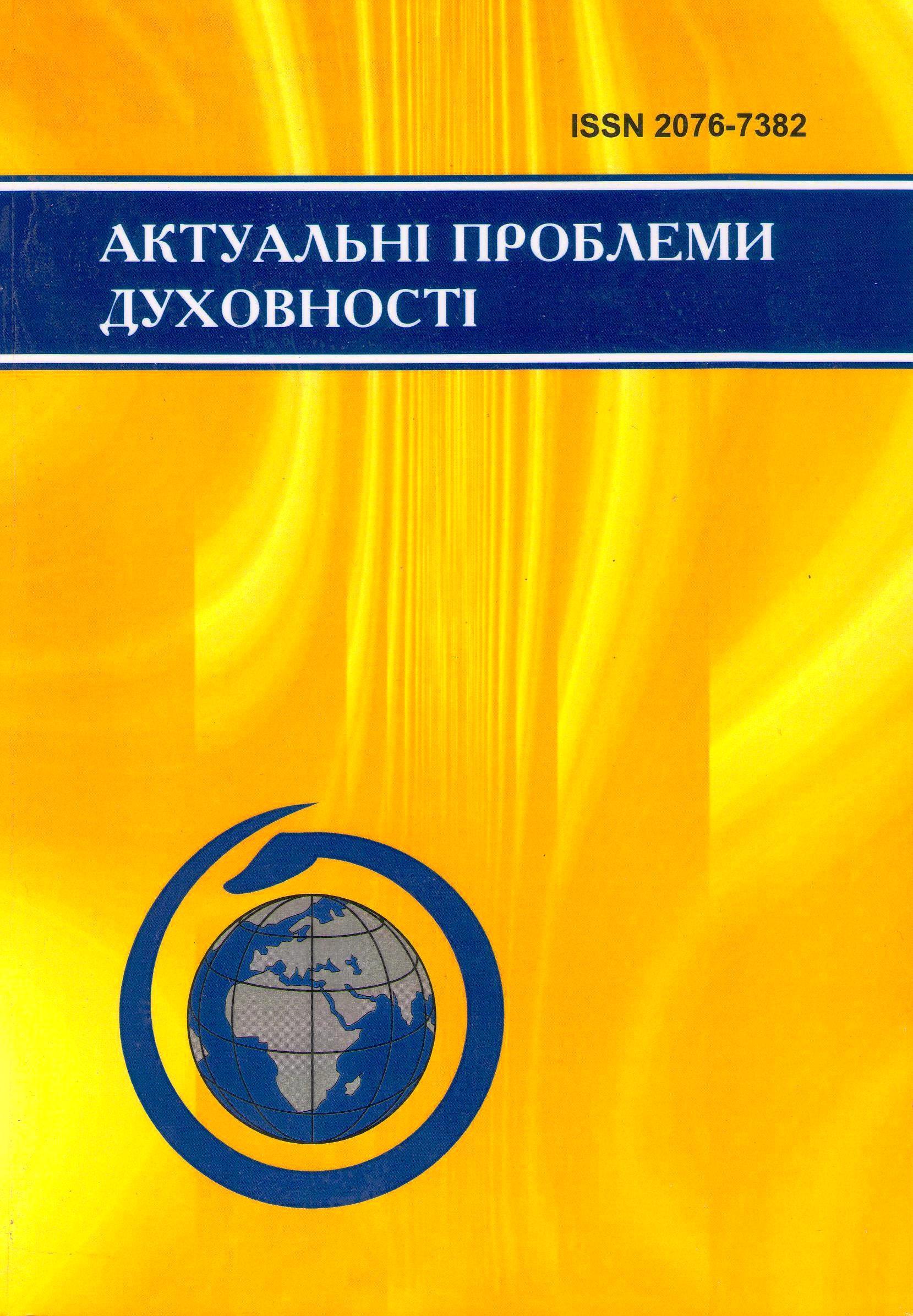Value preconditions and the educational guidelines of the open society
DOI:
https://doi.org/10.31812/apd.v0i22.4526Keywords:
Open society, rationality, critical thinking, piecemeal social engineering, education reform, social mimicryAbstract
The article is devoted to the issue of open society, its values, and the implementation of thereof in education. It emphasizes the importance of this concept in the context of the development of key problems of modern philosophy. The paper considers the system of ideals and norms of the open society and substantiates their interrelation with the principles of rationality. It analyzes the value principles of the functioning of the education system and the possibilities of its reformation based on critical rationalism. It outlines the following problems: the methodology of social reforms, the state control over education, the spread of anti-egalitarian tendencies in society, the regulation of the educational process, the introduction of a person-centred approach to learning, the approach focused on critical discussion of essential social issues, the problem of the development of the skills, necessary for participation in the democratic life of the country, the development of critical thinking. The article draws attention to the problem of reforming education in societies in the context of the dominance of moral relativism, the problematic aspects of the coexistence of contradictory traditions in society. It considers the peculiarities of education systems shaped by Marxist and post-Marxist ideologies. The paper emphasizes their connection with irrationalism and relativism. It also characterizes the formal way of organizing such a system and its value content. The article updates the categories of “social adaptation”, “social mimicry”, highlights the phenomenon of double moral standards of the post-totalitarian countries. It considers the principles of the strategy of the piecemeal social engineering for societies of such type. It covers the problematic aspects of the moderate (piecemeal) way of reforms and the method of radical transformations. It outlines the strategy of the constructive activity of the reformer, the features of his belonging to the critical-rationalist tradition. It emphasizes the role of philosophical education and philosophical disciplines in spreading values and ideals of the open society and the establishment of the rationalist tradition.
Downloads
References
Abdula A. I. Educational guidelines in the process of implementation of rational principles and the value preconditions of the open society. Philosophy of education. 2020. Vol. 26, No 1. P. 84-98. DOI: 10.31874/2309-1606-2020-26-1-5
Popper К. The Open Society and Its Enemies. Princeton and Oxford : Princeton University Press, 2013.
Jarvie I., Pralong S. Popper’s Open Society after fifty years: the continuing relevance of Karl Popper. London, New York : Routledge, 1999.
Jordaan D. The open society: What does it really mean? De Jure (Pretoria). 2017. Vol. 50. P. 396-405.
Bailey R. Education in the Open Society — Karl Popper and Schooling. New York : Routledge, 2018.
Agassi J. Dissertation Without Tears. Critical Rationalism and Educational Discourse. Amsterdam : Rodopi, 1999. P. 59-83.
Swann J. Popperian Selectionism and Its Implications for Education, or «What To Do About the Myth of Learning by Instruction from Without?» Rethinking Popper. Boston : Springer Science + Business Media B. V., 2009. P. 379-389.
Swartz R. Education for Freedom from Socrates to Einstein and Beyond. Critical Rationalism and Educational Discourse. Amsterdam : Rodopi, 1999. P. 36-59.
Lam C. M. Childhood, Philosophy and Open Society: Implications for Education in Confucian Heritage Cultures. Singapore : Springer, 2013.
McNamara D. R. Sir Karl Popper and Education. British Journal of Educational Studies. 1978. Vol. 26, No 1. P. 24-39. DOI: 10.2307/3120474
Chitpin S. Leading school improvement: using Popper’s theory of learning. Open Review of Educational Research. 2016. Vol. 3, No 1. P. 190-203.
Salamun K. Critical Rationalism and Political Education: Karl Popper’s Advice How to Neutralise Anti-Democratic Thought-Patterns. Critical Rationalism and Educational Discourse. Amsterdam : Rodopi, 1999. P. 83-93.
Abdula A. Vidkryte suspilstvo, krytychne myslennia ta ratsionalnist. Visnyk Lvivskoho universytetu. Seriia filosofsko-politolohichni studii. 2018. No 18. S. 13-20.
Abdula А. I., Baluta H. А. Indyvidualizm К. Poppera: vid metodolohii do etyky. Visnyk Lvivskoho universytetu. Seriia filosofskopolitolohichni studii. 2021. No 35. S. 9-16. DOI: 10.30970/pps.2021.35.1
Radnitzky G., Bartley W., Popper K. Evolutionary Epistemology, Rationality, and the Sociology of Knowledge. Chicago : Open Court Publishing Company, 1993.
Albert H. Treatise on Critical Reason. Princeton : Princeton University Press, 2016.
Popper K. Conjectures and Refutations: The Growth of Scientific Knowledge. New York, London : Basic books, 1962.
Winchester I. Joseph Agassi’s Educational in Interchange (1970-1987). Encouraging Openness. Essays for Joseph Agassi on the Occasion of His 90th Birthday. Springer International Publishing AG, 2017.
Lipman M. Thinking in Education. Cambridge : Cambridge University Press, 2003.
Kozachenko N. P. Krytychne myslennia: hranychni pidkhody ta optymalni shliakhy. Aktualni problemy dukhovnosti. 2017. No 18. S. 165-178.
Segre M. Applying Popperian Didactics. Rethinking Popper, Springer Science + Business Media B. V., 2009. P. 389-397.
Baluta H., Abdula A., Olifer O. The competence of risk assessment in the Structure of educational content. Challenges and opportunities of the modern risk society: socio-cultural, economic and legal aspects: monograph / Editors N. Varha, B. Hvozdetska. Praha : Oktan print, 2021. 169 р.
Panafidina O. Lohika suchasnoi osvitnoi paradyhmy: I. Kant proty Dzh. Lokka. Filosofiia osvity. Philosophy of Education. 2018. No 1 (22). S. 150-166. DOI: 10.31874/2309-1606-2018-22-1-150-165
Lobanova А. S. Fenomen sotsialnoi mimikrii. Kyiv : Instytut sotsiolohii NAN Ukrainy, 2004.
Holovakha Е. Y., Panyna N. Y. Sotsyalnoe bezumye: ystoryia, teoryia y sovremennaia praktyka. Kyiv : Abrys, 1994. 168 s.
Nodiia H. Reforma vyshchoi osvity v Hruzii. Reforma osvity: Bolonskyi protses ta avtonomiia vyshchykh navchalnykh zakladiv, Kyiv, 2011. 26 s.
Eidlin F. Matching Popperian theory to practice. Popper’s Open Society after fifty years: the continuing relevance of Karl Popper. London, New York : Routledge, 1999.
Downloads
Published
Issue
Section
License
Copyright (c) 2021 Andrii Abdula, Ivan Abdula

This work is licensed under a Creative Commons Attribution 4.0 International License.





